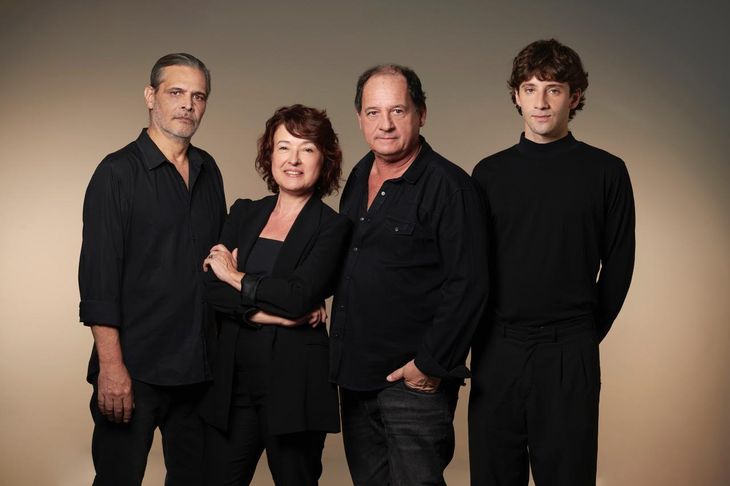“There are truths that can destroy a human being. In the name of my concept of truth, is it justified for me to destroy a life?” he wonders Julio Chavez, who premieres his new work “The sacred”, on April 12 at Paseo La Plaza.
Co-authored with Camila Mansillawith whom he had already written “After us”, “A while with him”, “Inés” and “When I look at her,” The play that Chávez directs and stars in features performances by Rafael Federman, Eugenia Alonso and Claudio Medina. It is about the meeting between a philosopher and writer with the son of his former partner with whom he lived. The young man comes to ask him to keep a promise. We talk with Chavez.
Journalist: How did the work come about?
Julio Chavez: We wanted to talk about the sacred, although at first that was not the word that appeared but promise. We investigate those things that have to do with commitments, promises, words that one says, ideologies that one believes that one carries out, the issue of ethics. The principles to which an obstacle is placed, a test. Sometimes we promise but that never turns into action. When we say things, life suddenly rings your bell and tells you “you said this, now you have to follow through.” As Shakespeare says, responsibility is what one leaves outside the house in order to be happy.
IMG_3277.JPG
Q: How do you address these issues?
JC: The little story has to do with a well-known, successful and esteemed author of novels, writer, philosopher, who at an advanced point in his life allows himself to write his autobiography with reflections on things he has experienced. A young man is presented to him as the confrontation of the life lived with the one he remains to live. How to wake up in the morning and say “I’m going to be a good human being” and since the topic is the sacred, what is it that each person considers sacred? We do not want to put the object of the sacred on stage but rather the question about the sacred.
Q: How do you deploy that question on stage?
JC: For example, artists assume that art justifies everything, legitimate beings of thought justify anything. Do legitimized knowledge and cultural institutions have the truth about human existence? Do those who think they know know everything? And in the play someone arrives who is young and comes with a very particular request, “you don’t mess with me.” If for me the truth is sacred and I continue with that slogan, there are truths that can destroy a human being. In the name of my concept of truth, am I justified in destroying a life?
Q: Why did you focus on the bond between a stepfather and his son?
JC: Because it plays a certain responsibility that is sustained not by a natural organic parent-child bond that obligates someone, responsibility for protection is assumed without being the father and that is a double decision. Nothing obligates and that responsibility is established that is supposedly carried by something natural. There is something of the word at stake, consciousness is not something that is regulated naturally, it is not natural, it is constructed. Everyone has the responsibility to understand and in that ethical awareness lies the fight.
Q: What other issues come into play when it comes to ethical awareness?
JC: I think about the information we have about other human beings, from high to small, for example, the neighbor received two men, what does one do with that? Does having seen give you the right? What are the consequences that talking about another can have? Everything we report in a seductive way, how many times do we say I curse the hour when I told all this? Because what I told innocently or not can be used in a harmful way. From the neighborhood riffraff to a biographer or journalist who can reveal intimate issues.
Q: What do you think of the cut to Culture?
JC: Art administration has always been failed, we are all failed. Whenever aid is removed, I do not agree, there could come a time when a tribe makes the decision to review issues, that is one thing, it is another to do harm indiscriminately. In the work I am not referring to the political-cultural administration, we do not enter that system, although anyone can grasp the topic and transport it to the situation, the question about the sacred is broader although it can well be framed there as well.
Source: Ambito
I am an author and journalist who has worked in the entertainment industry for over a decade. I currently work as a news editor at a major news website, and my focus is on covering the latest trends in entertainment. I also write occasional pieces for other outlets, and have authored two books about the entertainment industry.




